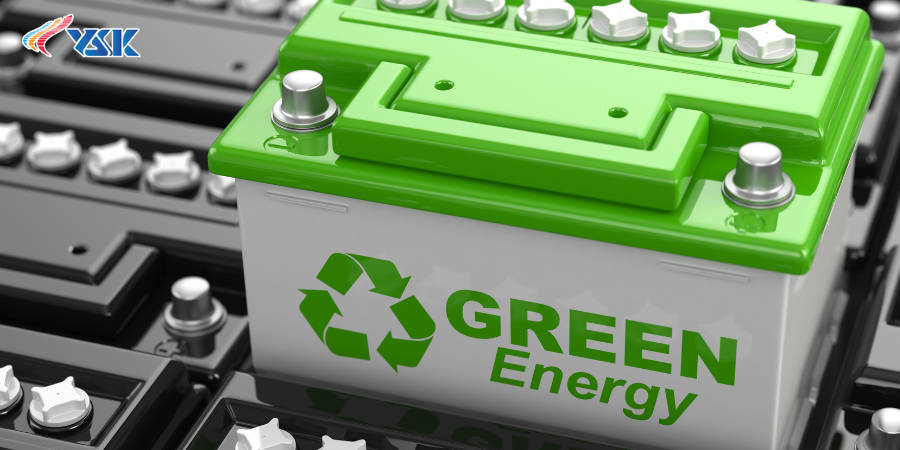Environmental pollution poses a significant challenge in Malaysia, as waste management, air quality issues, and water pollution impact the nation’s ecosystems and communities. One of the various factors contributing to this issue is the improper disposal of car batteries, which contain toxic substances that can seep into the environment and cause serious health and ecological problems. By embracing responsible disposal methods, we can collectively help mitigate pollution and safeguard our surroundings. Here’s why it is crucial to properly recycle and dispose of car batteries, and how you can play a vital role in maintaining a cleaner and safer Malaysia and planet Earth.
Environmental Impact of Car Batteries: Preventing Toxic Pollution
Old car batteries contain hazardous substances such as lead, sulphuric acid, and various heavy metals. If disposed of incorrectly – whether through dumping, burying, or placing in regular waste – these substances can leach into the soil and water, leading to the contamination of natural ecosystems and drinking water sources. In Malaysia, home to rich and diverse ecosystems, this can cause enduring environmental harm, impacting flora, fauna, and even the food chain. Recycling car batteries ensures that these dangerous substances are handled correctly, reducing their environmental footprint and lowering the risk of contamination.
Safeguarding Community Health and Safety
Improperly discarded car batteries are not only detrimental to the environment but can also pose significant health threats to communities. Lead exposure, even at low levels, is extremely toxic, particularly for young children, as it can result in developmental delays, learning difficulties, and other serious health problems. The acid contained in batteries can result in burns and respiratory issues, presenting dangers to individuals who handle them without adequate safety measures. Correct disposal practices ensure these harmful substances are securely contained, minimising the risk of exposure and preserving the health of local communities.
Conserving Resources: Recycling and Reusing Car Batteries
Car batteries have a high recyclability rate, with approximately 99% of their parts being reusable. Metals such as lead, plastic casings, and acid can all be retrieved and repurposed, making the recycling of car batteries an exceptionally efficient process. By processing used batteries, we decrease the necessity to extract new materials, thereby conserving natural resources and minimising the energy and environmental impacts linked to mining. This results in a reduced demand for fresh raw materials in battery production, and recycling existing materials significantly enhances the sustainability of battery manufacturing.
Minimising Greenhouse Gas Emissions from Car Batteries
The production of new car batteries using raw materials consumes a lot of energy and generates substantial greenhouse gas emissions. In contrast, recycling batteries involves reclaiming materials that need significantly less processing, which conserves energy and lowers carbon emissions. The carbon footprint linked to battery recycling is much smaller than that of extracting and processing new materials, making battery recycling a straightforward and effective method to support Malaysia’s wider initiatives to combat climate change and reduce pollution.
Car Battery Trade-In Programmes: Economise and Conserve the Planet
An increasing number of car battery shops in KL and Selangor are now offering trade-in programmes, making it easier to recycle your old car battery and save money. Through these initiatives, you can bring in your used battery to receive a more affordable car battery price for a new one, helping you save while ensuring the proper disposal of your old battery. This not only helps you reduce expenses, but it also encourages responsible recycling. The next time you require a replacement, inquire with your local store about trade-in options – it’s a straightforward way to contribute to environmental initiatives while securing a better deal on your purchase.
Simple Steps for Responsible Car Battery Disposal
Here are some other quick and efficient ways to ensure your car battery is disposed of safely:
- Check out Recycling Centres or Auto Battery Shops: Numerous car battery service providers and recycling facilities will accept old batteries, and may even provide incentives or discounts. These locations guarantee that batteries are processed and recycled correctly, preventing toxic substances from entering landfills.
- Never Dispose Car Batteries in Regular Trash: Car batteries must not be discarded with everyday waste, as this can result in harmful leaks and potentially fires in landfills. The materials in batteries are extremely toxic and necessitate specialised recycling methods for safe handling.
- Seek Out Community Collection Events: Certain regions host regular or periodic hazardous waste collection events, allowing you to drop off items like car batteries at no cost. Inquire with your local waste management authority or municipal office to learn more about upcoming events in your area.
Safely disposing of car batteries is not only a responsible action but also crucial for safeguarding Malaysia’s environment, public health, and future. By recycling used batteries and participating in trade-in programmes, you can have a positive effect and help create a cleaner, greener world. When you next change your car battery, keep in mind that a straightforward, conscious choice can lead to significant benefits for both the environment and society.


